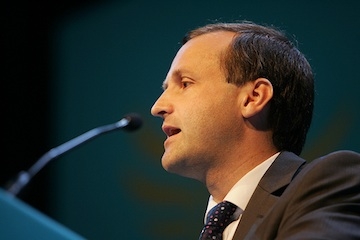A cap on auto-enrolment pension scheme charges has been delayed until April 2015, the pensions Minister announced today.
A consultation on a cap of 0.75% or 1% per annum ended in November, with the original plan to introduce it this April.
However, pensions Minister Steve Webb, said in a written statement issued today: "To give those employers at least twelve months notice of the rules that will apply to them I can confirm that any cap on charges will not be introduced before April 2015."
He stressed the Coalition's commitment to a cap, saying: "We remain strongly minded to cap pension scheme charges in the default funds used for automatic enrolment."
{desktop}{/desktop}{mobile}{/mobile}
He insisted the Government is committed to tackling high charges in workplace pension schemes, particularly for those workers who do not exercise any choice where they are automatically enrolled into a scheme then remain in the default fund.
The Department for Work and Pensions will continue examining the consultation responses before bringing forward final proposals.
Angela Seymour Jackson, Aegon's managing director of workplace solutions, backed the delay.
She said: "Making a success of auto-enrolment is Aegon's and the Government's top priority.
"Rushing new scheme conditions through at this critical stage would have disrupted many employers' plans to use good existing schemes.
"The Pensions Minister's decision will avoid employees losing out on valuable contributions while employers made alternative arrangements."
Neil Carberry, CBI director for employment and skills, said: "The Government has listened to business concerns about the impact of a charge cap announcement at short notice.
"What we now need is a system that ensures choice for companies trying to do the best for their staff."
Aviva's head of policy John Lawson said: "Giving consumers good value when saving for retirement has to be our number one priority.
"If that means government and the industry need to take more time to consider the best solutions, then we should take it - the consequences of getting this wrong are serious."

